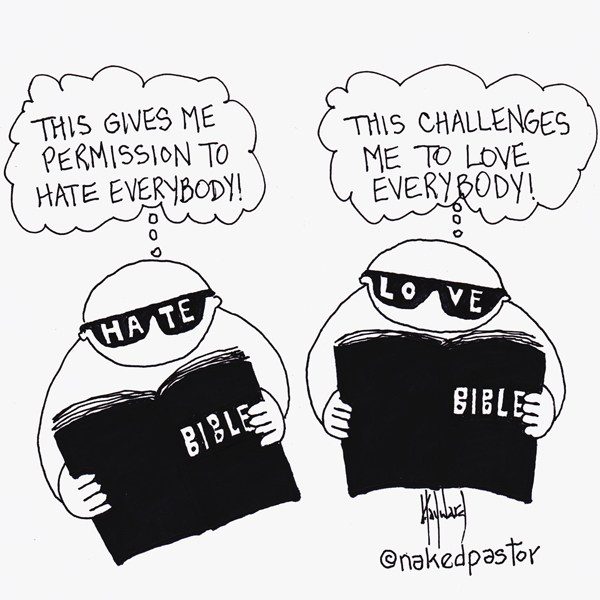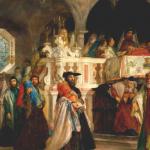In my Sunday school class this past Sunday, we moved into chapter 9 of the Gospel of John. Since there is a focus on healing on a Sabbath, we turned our attention once again to the theme of prioritization of values that I explored in my recent blog post, “Diverse Diversities.” I tried to not only highlight this as characteristic of the teaching of Jesus, and of the American Baptists, but also to make clear that it is not simply a matter of “principles vs. passages”, however much that paradigm may fit to a significant extent, and notwithstanding the fact that I’ve used that terminology in the past. It is our own values that we already hold that shape how we read the Bible, even if reading the Bible (and anything else) can also challenge our starting point, if we let it. One can accept the teaching of Jesus on the need to prioritize love for God and love for neighbor, and still justify passing by an apparently dead man if you are a priest walking down the Jericho road. What better expression of love for God than carefully obeying the prohibition against priests having contact with a corpse?
The main point is that it is not enough to agree on how to prioritize commandments; we can agree on the prioritization but interpret them differently, and so still end up with very different moral stances.
Having just been talking about the above, I was obviously struck when I saw that David Hayward had shared this cartoon which makes the same point:

In my class, I also worked in mention not only of the trolley problem, but even trolley problem memes!
I love teaching Sunday school – it provides a wonderful opportunity to ask (and, when necessary, be forced to ask) “so what?” questions about matters of biblical interpretation and theology that might otherwise be left as purely historical or theoretical matters.













